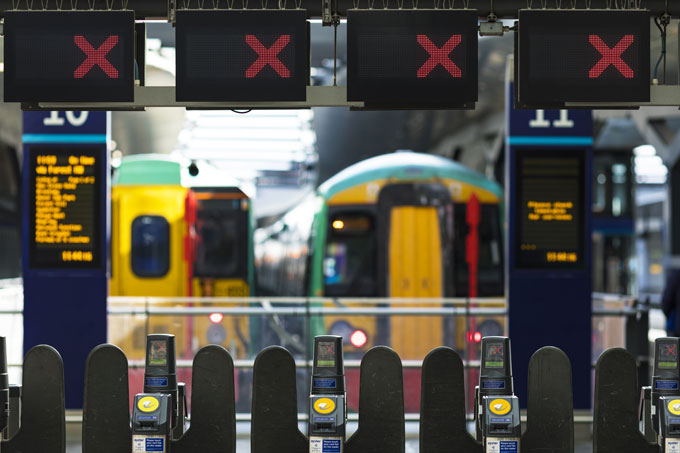Highlighting the importance of public transport to the economic and environmental recovery, post-Covid, Dr Susan Kenyon examines the potential next week’s planned rail strikes have to disrupt to the post-pandemic public transport recovery, which is essential for individuals, communities and the environment.
To succeed in our fights against climate change, poverty and exclusion, we need to support people to return to public transport.
Statistics are encouraging: public transport is starting to recover, post-pandemic. Data released today by the Office for Rail and Road show that rail passenger journeys in Great Britain have more than doubled in the last year, compared with the lockdown year.
Whilst we still have a long way to go in encouraging people back to rail – this equates to 57% of the journeys made, pre-pandemic – the trend is in the right direction.
Unfortunately, the rail strikes planned for Tuesday 21, Thursday 23 and Saturday 25 June, called by the RMT union in a dispute over pay freezes and job cuts, may disrupt this recovery.
In mode choice, our beliefs – how we feel about the mode – are central. When choosing how to travel, few of us make a rational choice, based on a fully informed assessment of the costs and benefits. In fact, few of us make conscious choices at all – we are greatly influenced by perceptions and habits, biases, intuition and emotions.
This makes the potential impact of the strikes far greater than the week-long, practical interruption to our daily routine. As I wrote in a previous blog, rehabilitating public transport through a positive public image campaign is essential for a post-pandemic, green transport recovery. There is potential that the strikes will have a very negative effect on how we feel about public transport, affecting perceptions of reliability, safety and the overall desirability of travel public transport, vis-à-vis other modes.
This is all the more important because of the increase in travel by car, post-pandemic.
As I predicted in a previous blog, the pandemic lockdowns have not led to a sustained reduction in levels of personal travel in the UK. Working from home is decreasing, as more workers are called back to the office; and travel for other purposes continues to rise, as sites for education, leisure, shopping and socialising have reopened.
Unfortunately, much of this renewed demand for travel is not being met through active travel – cycling and walking – or through public transport – bus, or rail. It is being met by the private car.
This is a real problem for the environment: private car use contributes to climate change, land degradation and resource use. It is also a financial problem for many of us. Fuel prices are rising rapidly, alongside rapid rises in the cost of living, which will result in more people experiencing transport-related social exclusion: being unable to get to activities such as work, or education, because they cannot afford the cost of fuel; or being unable to afford to buy goods or pay bills, because they are spending so much on fuel.
Public transport, including travel by rail, is vital in enabling access to the opportunities, goods, services and social networks that are necessary for people to be socially included. We cannot achieve a reduction in mobility-related social exclusion without public transport. And we cannot succeed in our fight against climate change without public transport.
This blog is not a comment on the rights or wrongs of the rail strike. It is not a vote of support for or against the RMT, or the government. In that matter, I remain professionally neutral.
It is important that the influence of public transport in the economic and environmental recovery, post-Covid, is recognised; and that the utmost be done to avert the strikes, because of the potential disruption to the post-pandemic public transport recovery, which is essential for individuals, communities and our environment.
Dr Susan Kenyon is a Principal Lecturer in Politics. She has studied transport and travel behaviour since 1998. Her module Transport: Politics and Society is open to second year students studying Politics and International Relations. The module considers the challenges of social exclusion and sustainable development in transport planning and has been carefully designed to integrate work related learning opportunities for students.
 Expert comment
Expert comment Jeanette Earl
Jeanette Earl 1842
1842


